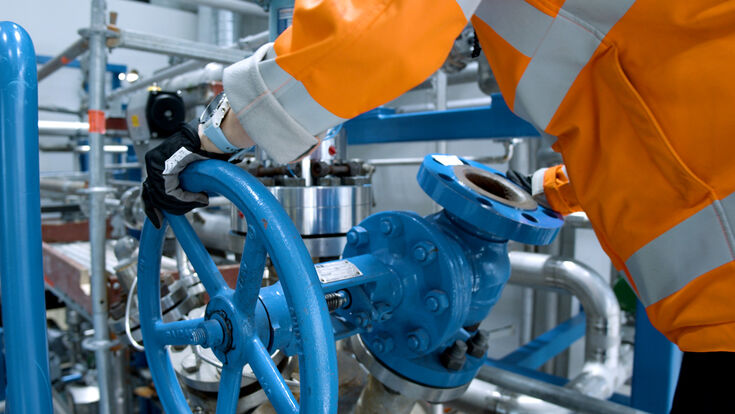Wastewater : Circular economy products developed from industrial wastewater

The treatment of industrial wastewater creates effluents which contain substances such as nitrogen, phosphorus, potassium, and sulphur. It is harmful to discharge large amount of nutrients into the environment, but when these nutrients are recovered they serve as valuable constituents of new circular economy products. At the same time, the use of virgin raw materials can be reduced, while boosting self-sufficiency e.g. in nitrogen-based and phosphorus-based industrial chemicals and fertilizer products in Europe.
Technically and economically feasible solutions for treatment of wastewater and recovery of nutrients are being developed in the TYPKI project. It is coordinated by VTT and promotes the recovery and refinement of nutrients into industrial chemicals, construction materials, and fertilizer additives.
Purification and separation technology covers different types of methods from pre-processing to membrane filtration or evaporation. When the methods are combined intelligently, valuable nutrients can be separated from the wastewater for further refinement.
New circular economy products from nutrients – focus on industrial chemicals
Legislation that steers circular economy products is changing, making it easier to productise wastewater and effluents. Constituents that can be separated from waste flows have been treated as waste-based substances, but now they are seen as valuable raw materials. This is important if circular economy products are to compete against products produced from virgin raw materials.
In the TYPKI project, new nutrient innovations and circular economy products are being developed from industrial effluents. The effluents to be used are coming from the mining sector, followed by other fields of industry such as the chemical, and forest industries.
“In new circular economy products, we are focusing especially on additives in chemicals that are used in the construction industry. We are seeking a better composition and clean product flows from which harmful substances and excess water, for example, have been removed. The goal is to develop competitive products with features that correspond to the customer's needs”, says Project Manager Hanna Kyllönen at VTT.
“At Tapojärvi a circular economy of metals has been at the core of our activities for about 20 years already. The TYPKI project is an important continuity for this pioneering work. Now we are latching on to this possibility of recovering nitrogen used in the mining industry, for example”, notes Jaana Koivumaa, project director for Tapojärvi's subsidiary Hannukainen Mining.
Comprehensive solutions for the entire nutrient value chain
The TYPKI project consortium includes research institutes and companies, from producers of wastewater to experts in purification and separation technologies, to manufacturers and users of recycled products. This forms a strong ecosystem around recycled nutrients. International cooperation enhances the skills and knowledge.
“Our goal is to build the best possible consortium to develop new circular economy concepts and to promote Finland's innovations and offerings in these themes. By joining forces we can compete on the international circular economy market. There are undoubtedly other ongoing activities linked with recycled nutrients, and I hope that those who are interested in the theme would contact us”, Kyllönen says.
The two-year TYPKI project (Resource-wise nutrient recovery from industrial wastewaters), which is partly funded by Business Finland, has a total budget of 1.03 million euro. The project is coordinated by VTT and the consortium includes the University of Oulu, Tapojärvi, Aquaminerals, BioSO4, Brightplus, Industrial Water Ltd., Agnico Eagle, Gasum, Hannukainen Mining, Valmet, and Yara.
